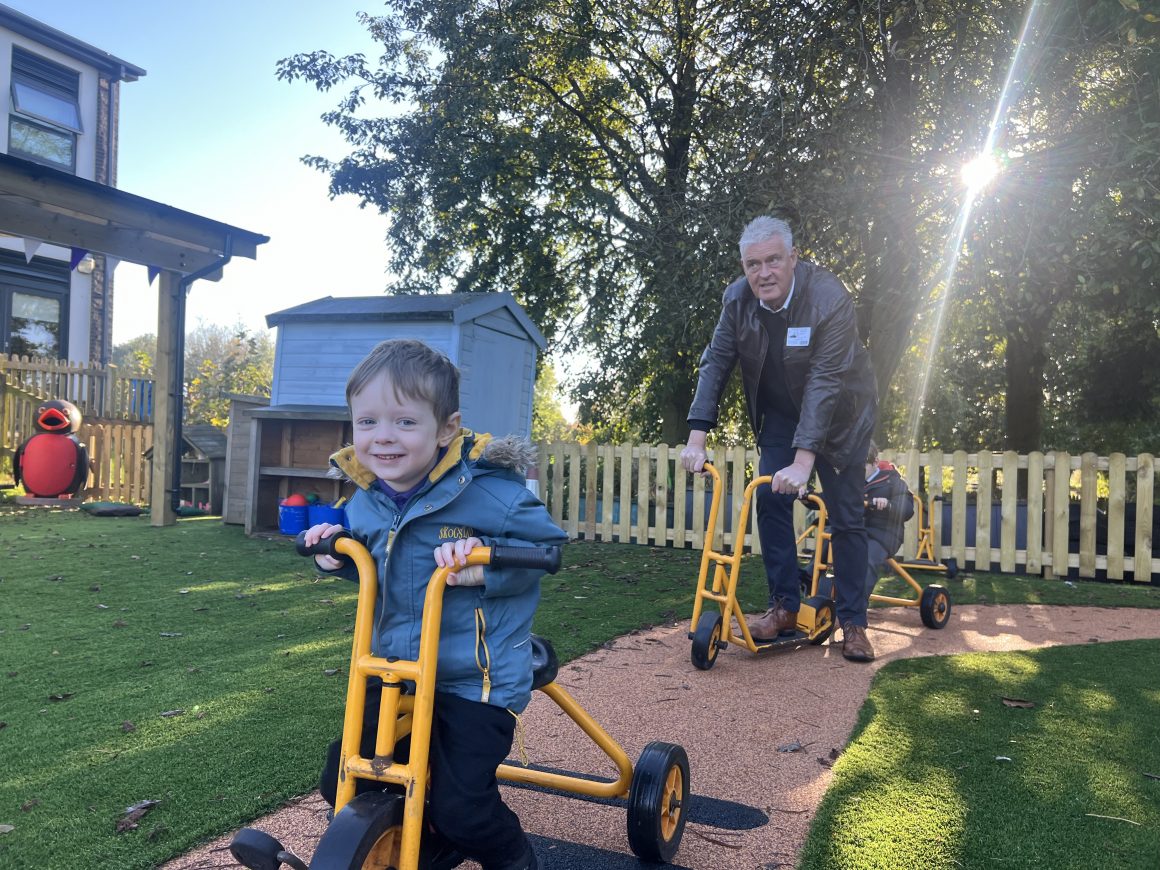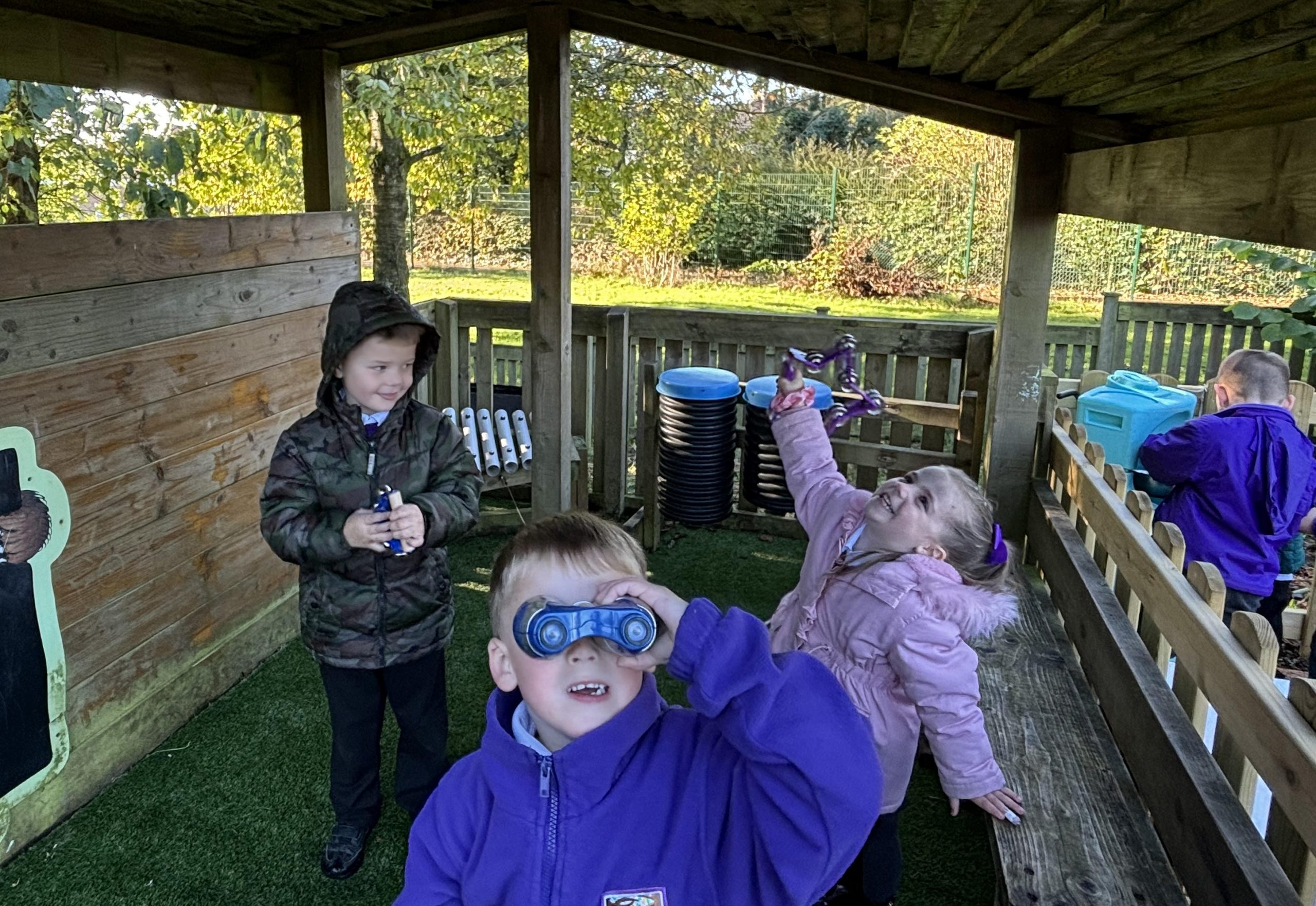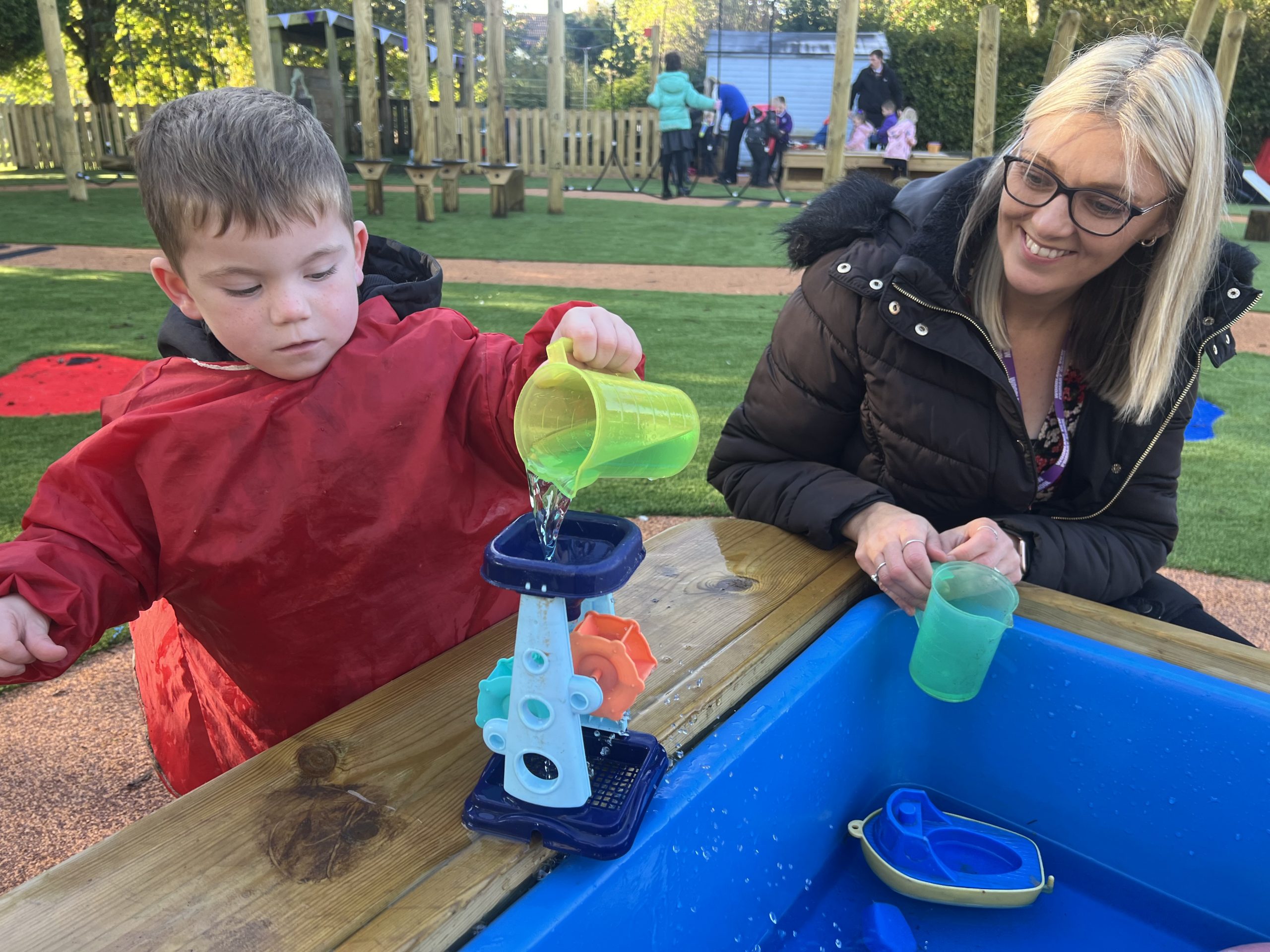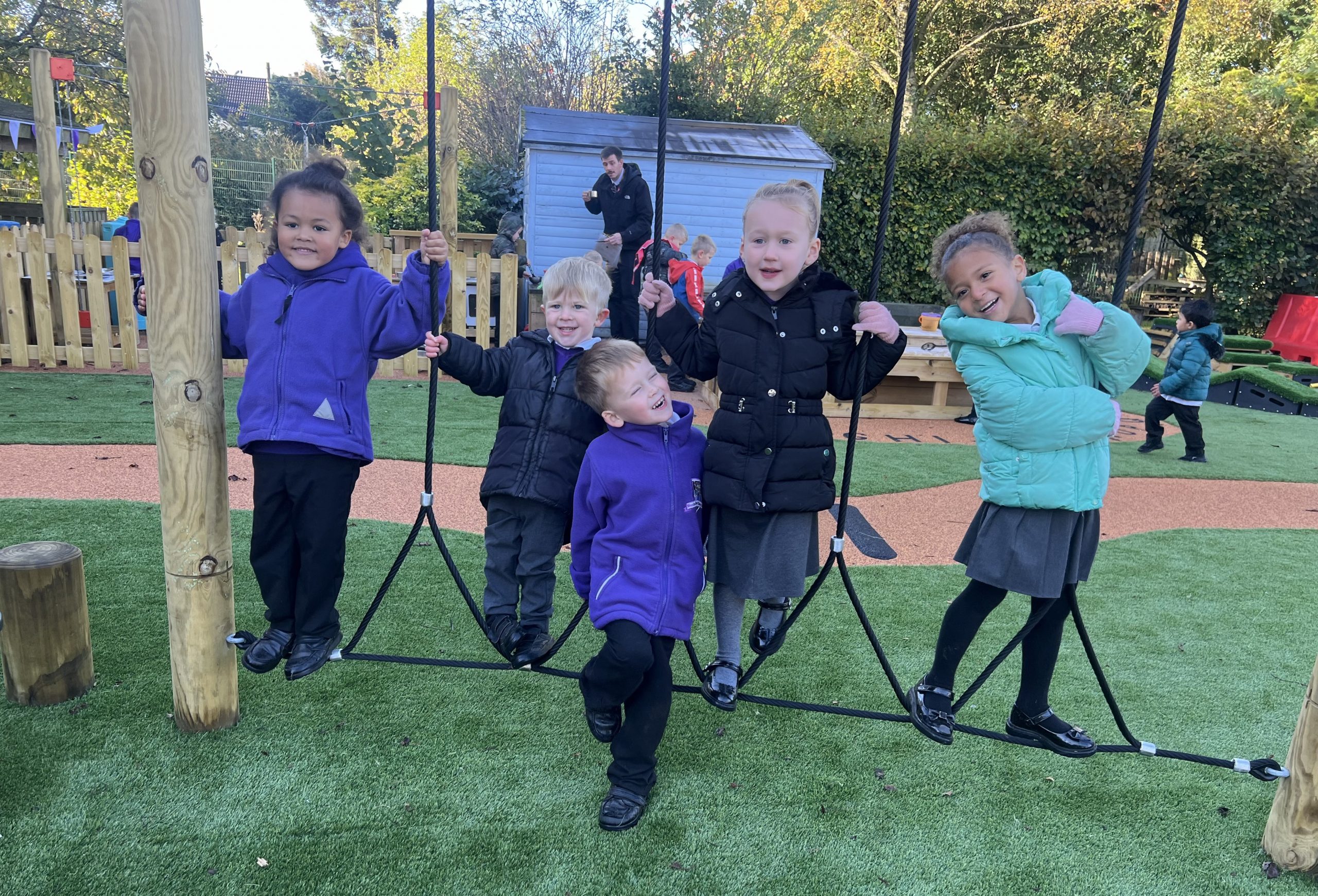This month, the youngest children of Woodland View Primary School invited their families, governors and local MP (a former pupil at their school) to show off their brand-new outdoor learning space.
During the summer holidays, the extensive, secure outdoor area used specifically for the school’s youngest children was transformed into a magical space full of awe and wonder to spark their curiosity, develop their physical, cognitive and social and emotional development, and encourage learning through play.
Outdoor learning through play offers a wealth of benefits for children, including:
- Physical development: Our outdoor space offers children the freedom to move in ways that are not always possible indoors. Running, climbing, jumping, and balancing help develop their gross motor skills (abilities that use the larger muscles in the body such as jumping or climbing), coordination and strength. The varied, open environment encourages children to be physically active, which promotes a healthy lifestyle from an early age.
- Cognitive development and problem-solving: The outdoor environment presents children with constantly changing stimuli and challenges. They learn to observe, question and think critically, fostering problem-solving and cognitive development. Whether they are building, or figuring out how to navigate the trim trail, it sparks curiosity and creative thinking.
- Social skills and collaboration: Outdoor play involves larger groups of children working together. It offers natural opportunities for children to practice communication negotiation and teamwork. Sharing resources, cooperating on tasks or taking turns on our new equipment helps children develop essential social skills
- Sensory exploration Our new area provides a rich- multisensory environment. Children engage with natural textures sights, sounds and smells which enhances their sensory awareness. This sensory engagement is vital for brain development and helps children learn about the world around them in a meaningful, hands-on way.
- Emotional well-being The new and improved environment helps children develop independence, and self-confidence. Children have begun to take more risks with their climbing, learning to manage new physical challenges and celebrate successes, which builds their emotional resilience.
- Boosting creativity and imagination: The natural world is an open-ended resource that stimulates imaginative play. Whether children are pretending a tree is a castle, creating artwork from leaves, or playing make-believe in the sand kitchen, the new and improved learning environment encourages creative thinking. This free, unstructured play is crucial for cognitive flexibility and problem-solving skills
- Encourages risk-taking and independence: Outdoor play areas provide safe opportunities for children to engage in risk-taking behaviours such as climbing or exploring unfamiliar areas. This helps children develop independence and self-regulation as they learn to assess the risk, make decisions and push their own boundaries within a supportive environment.
- Supports all areas of learning: As well as physical development, outdoor learning also helps develop literacy, numeracy and communication skills. It helps integrate and enhance learning across multiple areas of the EYFS curriculum.





